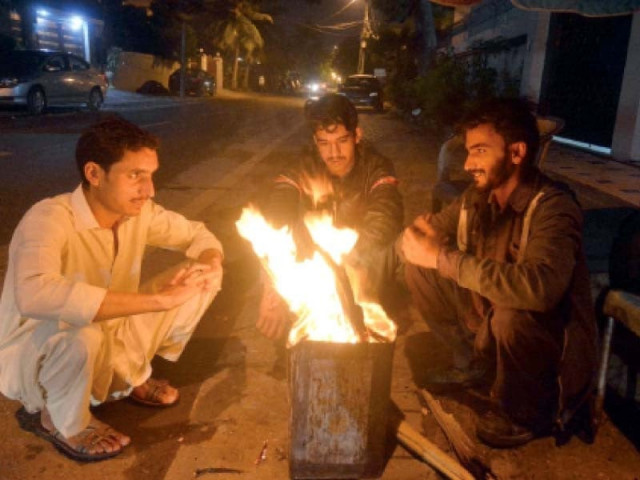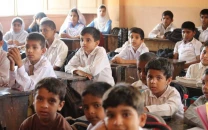Cold weather triggers respiratory illnesses
Flu, chest infection and pneumonia on the rise, especially among children

The number of patients with viral diseases like flu, chest infection and pneumonia has increased during the last month as government and private hospitals and clinics across the province witnessed a rush of patients, especially infants and children. Doctors blame the current cold weather for the surge in viral illnesses, especially chest infection and fever, in rural and urban parts of northern Sindh. Most of the patients, especially children, contract viral diseases like influenza, bronchitis, nasal allergy, asthma, sore throat, chest infection, and pneumonia, dry cough and scabies.
Flu related diseases have infected a large number of people, particularly children and infants, as patients with such diseases are seen in great numbers at the government as well as private hospitals. Child specialist Dr Zulifqar Soomro said on Thursday that common cold and flu in children should not be taken lightly as these might lead to lower respiratory tract infections, including pneumonia, while stressing the need to take additional care of children in winter, adding that parents should dress their children in warm clothing.
Read Seven kids fall prey to pneumonia
"I also advise parents not to overheat their children and just put on sweater and warm clothes as sometimes overheating is also not good for them," he added. One of the basic causes of various diseases is that people do not know how to protect their children, he said. If proper care is not taken, complications such as ear and sinus infections, pneumonia and high fever could occur.
Dr Najia said that most of the patients come from the slums who complain that they cannot keep their children warm because of electricity and gas load-shedding. She said that severe cold and dry air may cause respiratory tract infections and as well trigger asthma among people of all age groups. "It is need of hour to create awareness among public regarding protection from infections," she said.
Read State of healthcare in country grim: PMA
Dr Najaf Ali Shah said that people should use green tea, coffee and tea to avoid viral infections. People should pay more attention to the kind of shoes they wear. "Shoes should neither be too tight nor should they squeeze the toes. We should also avoid high heels daily and restrict them to occasional use," he stressed.
Dr Mansoor Memon, who serves at a government hospital in Ranipur, suggested that one should give one’s feet a 30-second inspection daily to check for any peeling skin, unnatural moistness or to rule out any discoloration, redness, cracks or other abnormalities.
Upon discovering any of these abnormalities we should consult a doctor as soon as possible. To avoid diseases, ex- perts suggest keeping the feet dry. Diabetics must take special care of their feet and in case they notice anything unusual they must consult a good doctor as soon as possible.



















COMMENTS
Comments are moderated and generally will be posted if they are on-topic and not abusive.
For more information, please see our Comments FAQ